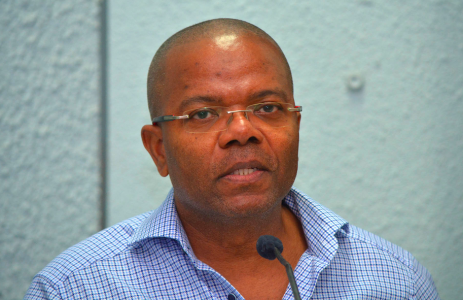
WILLEMSTAD – The former Prime Minister of the Netherlands Antilles, Etienne Ys explains the negotiations around the formation of a new government for Curaçao.
The parties MAN, PAR, PNP and Pueblo Soberano (PS) have signed a willingness statement. These four parties are willing to form a coalition to govern the island in the next four years.
These parties will later have, respectively, 4, 4, 2, and 2 seats in parliament, which is a majority of 12 seats. They do not exclude the cooperation of one or more parties. However, given their statements, both MFK of Gerrit Schotte and Korsou di Nos Tur of Amparo dos Santos are excluded. A possible extension could, therefore, reach 14 seats in parliament. These two addition seats will come from Un Korsou Hustu of Omayra Leeflang and Movementu Progresivo of Dr. Marily Moses.
How the allocation of ministerial posts could look like at the different scenarios? Mind you, the Minister Plenipotentiary is not a minister. It, therefore, involves nine ministers (or portfolios).
In the allocation of portfolios, there are some basic rules and traditions:
– The number of seats and not the number of votes is what counts;
– The number of portfolios is basically divided in proportion to the number of seats that are divided among the parties. Here the democratic principle is that the parties with the highest number of seats, in proportion, will also exert the most power within the government;
– Parties that have only one seat generally receive one (1) full minister;
– Since there only full ministers may be distributed some parties tend to get underrepresented and other parties overrepresented. In such cases, the discrepancies tend to be compensated through the award of other posts such as President of Parliament, the Deputy Prime Minister, important public limited companies and foundations, important dossiers, Deputy Ministers Plenipotentiary, etc.;
– The party with the largest number of seats, the winning party, provides the Prime Minister;
– The rule is that the post of Minister Plenipotentiary is always linked to the Premier.
The scenario of 12 seats: MAN and PAR have each 4 / 12th = 1/3 (one-third) of the number of seats. PNP and PS have 2 / 12th = 1 / 6th (one-sixth) of the number of seats. The portfolio allocation is therefore in the same proportion.
MAN and PAR get each 1 / 3rd part of the number of ministerial posts and thus three ministers each.
PNP and PS get each 1 / 6th part of the number of ministers and that is 1.5 (one and a half) each. The complication here is of course that half-ministers are not possible. The basic distribution is then 3-3-1-1. It should be resolved during the negotiations regarding the placement of the 9th minister and possible compensation for the underrepresented.
The scenario of 13 seats: In this case UHK or MP are added. MAN and PAR get each 4 / 13th of the number of ministerial posts and that is 2.8 ministers for each. PNP and PS have 2 / 13th share which corresponds to 1.4 ministers. The fifth one-seat party gets 1 / 13th part, and this is 0,7 ministers. The distribution will be 3-3-1-1-1. Again, there is underrepresentation to be resolved during the negotiations.
Scenario 14 seats: Here the basic distribution is 2-2-1-1-1-1. There still remains one minister to be given a place in the negotiations.
Finally, a scenario of 11: This is a scenario without PNP or PS but UHK or MP (allocation here is therefore 4, 4, 2, 1). In this case, the portfolio distribution is 3-3-2-1. The scenario with the least complications.
Bron: CuracaoChronicle

